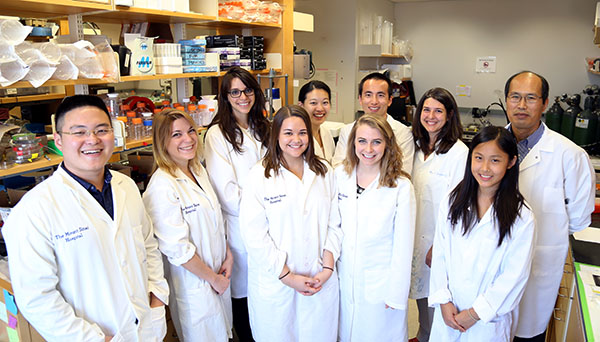
Welcome to the Han Lab of Cellular Neurophysiology.
Our research group studies molecular (ionic and receptor) and cellular mechanisms of depression and alcohol addiction.
One of the most fundamental functions of the brain is the capacity to develop adaptive changes in response to environmental stimuli under both physiological and pathophysiological conditions. These neural adaptations can occur at a variety of levels such as at the levels of ion channels, synaptic transmission, and integrative function of neuron and neural network, and they are believed to be responsible for governing behavioral/psychological functioning. Dr. Han’s laboratory is specifically interested in identifying the intrinsic plasticity of ion channels and neuronal excitability, and adaptive changes in neural network, that are induced by psychological stress and alcohol in the dopamine circuit of the ventral tegmental area, an emotion- and reward-related system. Research in Dr. Han’s laboratory focuses on the underlying mechanisms of these neuroadpations and how they mediate behavioral susceptibility and resilience to stress and alcohol in laboratory models of depression and alcohol dependence.
To understand the roles of neuroadaptations in mediating behavioral changes, the laboratory employs an up-down-up methodology: established behavior model – neuroadaptation – molecular/ionic mechanism – molecular/ionic manipulation – validation of neuronal function – behavioral test. The laboratory uses in vivo and in vitro electrophysiological techniques to identify neuroadaptations and investigate molecular/ionic mechanisms, and employs advanced gene manipulation approaches, including viral-mediated gene delivery, local knockouts of interested genes, and optogenetic tools, to conduct molecular/ionic manipulation followed by behavioral assays. The combination of these gene manipulation techniques and neurophysiology offers the laboratory a unique ability to explore the neurophysiological basis of depression and alcoholism.

